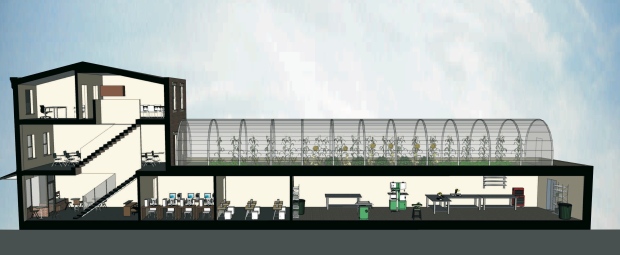PAGE IN DEVELOPMENT
Paulo founded the Ingoma Foundation as a vehicle to design, launch, model and replicate sustainable community development from bricks and mortar development, to economic development, to social development, to personal skill development – all achieved in partnership, and under the vision, leadership, and guidance of the community residents and stakeholders themselves. This work is really modeling how do manifest Cohado on the ground as a sustainable and integrated structure for community transformation. The projects below connect like russian nesting dolls with the Oldtown Redevelopment at the top, the incubator as a seed for economic development below that, the BenchMarks and Youth Unlocked projects falling under the incubation umbrella of the Cohado Cafe and Venture Workshop. Ingoma is the vehicle of the development of each of the projects below, Paulo Gregory is the architect, the designer, and the implementer of each, beginning with the Cohado Cafe, and is a partner with the Change 4 Real Community Coalition in the Oldtown redevelopment effort.
The projects below have been executed through Ingoma:
 theCONNECT (Baltimore City’s Youth Opportunity Network), stewarded by the Ingoma Foundation and Court Appointed Special Advocates (CASA Baltimore) is committed to weaving a seamless network to align responsive supports and real pathways to opportunities for disconnected youth in education, entrepreneurship, and employment.
theCONNECT (Baltimore City’s Youth Opportunity Network), stewarded by the Ingoma Foundation and Court Appointed Special Advocates (CASA Baltimore) is committed to weaving a seamless network to align responsive supports and real pathways to opportunities for disconnected youth in education, entrepreneurship, and employment.
theConnect is a cross-sector collaborative of more than 100 government agencies, service providers, educational institutions, employers, and non-profit organizations. This Collaborative is engaged in a collective impact effort to connect or reconnect Baltimore’s youth, not connected to work or education, to the economic life of Baltimore by creating and enhancing pathways into careers leading to family-supporting wages, entrepreneurship, and eduction that supports this movement.
Ingoma Foundation supported the development of the Oldtown Redevelopment Plan in partnership with the Baltimore City Department of Planning, Sojourner-Douglass College and the Oldtown Change 4 Real Coalition. Ingoma has provided ongoing research, strategy development and networking support to Oldtown community stakeholders and their counterparts in local government to ensure that the voice and interests of the Oldtown community is reflected in future development plans. The resulting Oldtown Redevelopment Plan was adopted by the planning commission in May of 2010. This plan forms the foundation of the holistic and sustainable redevelopment of the Oldtown neighborhood with an eye toward the development of sustainable, affordable housing and local ownership of commercial activity.
The Cohado Incubator will incorporate a retail storefront and café highlighting the products and entrepreneurial opportunities housed within. These include a technology training and development center teaching app development, 3D modeling and 3D printing, a wood and metal fabrication studio, a sewing enterprise, a rooftop aquaculture operation, a classroom for training in business development, skills and operations and offices. The Cohado Incubator will be dedicated to creating marketable products that can be sold wholesale and retail to sustain operations of the Workshop as well as the entrepreneurs engaged in the incubator. The Workshop will employ and train residents of the Oldtown in entrepreneurship and other marketable skills to enhance workforce development. The Cohado Incubator is integrated with the Oldtown Redevelopment and theCONNECT to link employment, business, community, and economic development to model the pathway to creating thriving communities.
BenchMarks Artisan Training Project
Ingoma Foundation developed the BenchMarks Artisan Training Project in cooperation with Gutierrez Studios, a Baltimore-based manufacturer of high-end architectural fixtures and contemporary furnishings, and initially funded by a seed grant from the Gutierrez Memorial Fund, to train economically challenged individuals in wood- and metal-working. The project successfully completed the first class of artisan trainees in basic woodworking with a 100 percent retention rate of participants. This project is the first of many innovative partnerships that provide training, employment, business development, and cooperative business ownership opportunities for individuals from economically disenfranchised communities. Through these innovative partnerships, we foster sustainable communities through incubating locally-owned and operated enterprises and providing economic development support. We are concentrating our efforts in the Oldtown community in East Baltimore to create leveraged impact for individuals and families, and to lift the community as a whole. This will model creative community economic development through concentrated small business development, thus stimulating economically sustainable communities. To find out more about our first project, the Ingoma/Gutierrez Craftsman Apprenticeship visit us at The Bench That Gives
The Youth Unlocked project evolved from a request from the Open Society Institute to impact the disproportunate representation of African American youth in the judicial system. We organized a series of dialogs between youth, community members and police designed to identify the challenges that lead to the disproportionately high rates of arrest and incarceration among youth of color. The concepts which arose from these dialogs led Ingoma Foundation to develop a pilot strategy to reduce the arrests of youth in Oldtown by 50% over three years that could be expanded across the City of Baltimore. The strategy sought to prevent arrest by engaging youth in positive activity in their communities while also providing support to manage challenges and opportunities; to intervene in arrest by developing relationships with members of the juvenile justice system to support the use of alternatives to arrest, and to reduce detentions by supporting and advocating for the use of community-based detention alternatives. After launching in December of 2012 , Youth Unlocked successfully reduced the arrest rate in the target community 65% in two years when funding for the project was cut. The lessons learned from the pilot continue to inform the work of the Ingoma Foundation’s other projects engaging youth.





